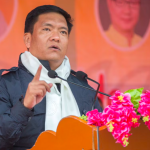Key Alert Before May 9 Attack
External Affairs Minister S. Jaishankar informed the Lok Sabha that on May 9, US Vice President JD Vance personally warned Prime Minister Narendra Modi about a large-scale Pakistani attack expected within hours. The Prime Minister responded firmly, making it clear that any aggression would face a strong Indian retaliation. Despite the attack occurring, Indian armed forces successfully foiled the assault.
Operation Sindoor: India’s Swift and Powerful Response
Jaishankar emphasized that India has entered a “new normal” in handling cross-border terrorism. The military’s counterattack on May 10 was rapid and effective, targeting Pakistani terror infrastructure. Satellite images of Pakistani airfields showed significant damage caused by India’s precision strikes during Operation Sindoor, launched on May 7 after the April 22 Pahalgam terror attack, which claimed 26 lives.
Pakistan’s Retaliation and Indian Defense Success
Pakistan attempted multiple attacks on Indian military positions from May 8 to 10, including a major missile threat aimed at the Adampur airbase. However, India’s advanced air defense systems, such as S-400 and Akash missile batteries, intercepted all threats successfully.
Diplomatic Pressure and Ceasefire Negotiations
Under growing international diplomatic pressure and facing heavy losses, Pakistan indicated a willingness to halt hostilities on May 10. Jaishankar clarified that India insisted on receiving any ceasefire requests only through official military channels. Pakistan eventually sent such a request via the Director General of Military Operations (DGMO), which India accepted.
Clarifying Misconceptions About US Mediation
Addressing claims that former US President Donald Trump brokered the ceasefire using trade negotiations, Jaishankar firmly dismissed them. He stated there were no conversations linking trade to peace talks and no communication between PM Modi and Trump from April 22 to June 17. The ceasefire was strictly a result of military and diplomatic engagement.
Global Support for India’s Stand
Jaishankar highlighted that India gained overwhelming international backing for Operation Sindoor, with only three countries besides Pakistan opposing it at the United Nations. This global support underscored recognition of India’s right to defend itself against terrorism.
India’s Five-Point Doctrine on Cross-Border Terrorism
Jaishankar outlined India’s clear stance on terrorism:
-
Terrorists will not be treated as proxies.
-
Cross-border terrorism will meet strong responses.
-
Talks and terror cannot coexist.
-
India will not succumb to nuclear threats.
-
Blood and water cannot flow together (rejecting coexistence with terrorism).
Indus Waters Treaty Suspended Over Terrorism Concerns
Following the Pahalgam attack, India suspended the Indus Waters Treaty until Pakistan ceases its support for terrorism. Jaishankar stressed the importance of sending a firm message that crossing India’s “red lines” would lead to serious consequences.
Global Diplomatic Campaign to Expose Pakistan
India launched a worldwide diplomatic effort to reveal Pakistan’s ongoing support for terrorism, emphasizing the Pahalgam attack’s aim to destabilize Kashmir’s economy and create communal unrest.
Response to Opposition Criticism
Jaishankar’s statements responded to opposition leaders, particularly Congress’ Gaurav Gogoi, who referenced Trump’s disputed ceasefire mediation claims. The External Affairs Minister countered by highlighting India’s consistent approach based on direct military and diplomatic engagement, without reliance on third-party interventions.
















